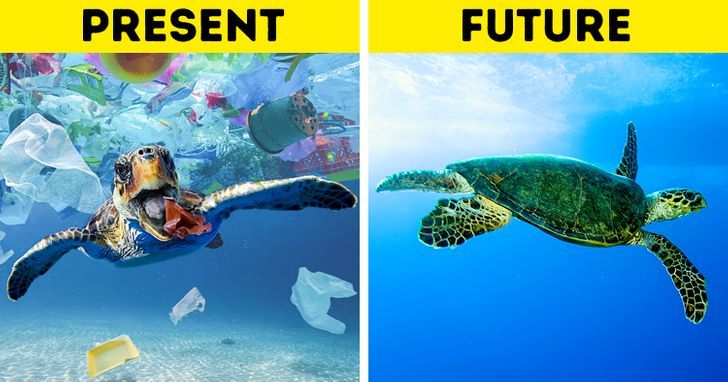

Researchers use satellite 🛰 data to detect and track masses of plastic floating in the ocean!
About 8 million tons of plastic flow from rivers and beaches and end up in the ocean every year. These plastics are carried by ocean currents and they are broken down into smaller pieces by waves and sunlight into small microplastics. Much of that debris collects in the calm centers of the ocean gyres in large floating garbage patches!
The Great Pacific Garbage Patch between California and Hawaii is the most well known because a lot of ship traffic passes through it. Scientists typically estimate the amount of plastic in marine garbage patches by dragging nets behind boats. However, this sampling method is geographically sparse and doesn’t give researchers a sense of how many plastic concentrations change over time!
Researchers from the University of Michigan recently developed a new method to map the concentration of ocean microplastics around the world. The researchers used data from eight microsatellites that are part of the Cyclone Global Navigation Satellite System. Radio signals from GPS satellites reflect off the ocean surface, and CYGNSS satellites detect those reflections. Scientists then analyze the signals to measure the roughness of the ocean surface. These measurements provide scientists with a means to derive ocean wind speeds, which is useful for studying phenomena like hurricanes. It turns out that the signals also reveal the presence of plastic!
Let’s hope that we will be able to get rid of the global plastic problem with awesome people like Sian Sutherland who is fighting this problem and Sharon Barak who came up with plastic alternatives. Let’s give them a big round of applause! 👏
Please do make the earth a better place to live for our future generations to come!!!
By Sri Nihal Tammana


© copyright 2022 by Recycle My Battery